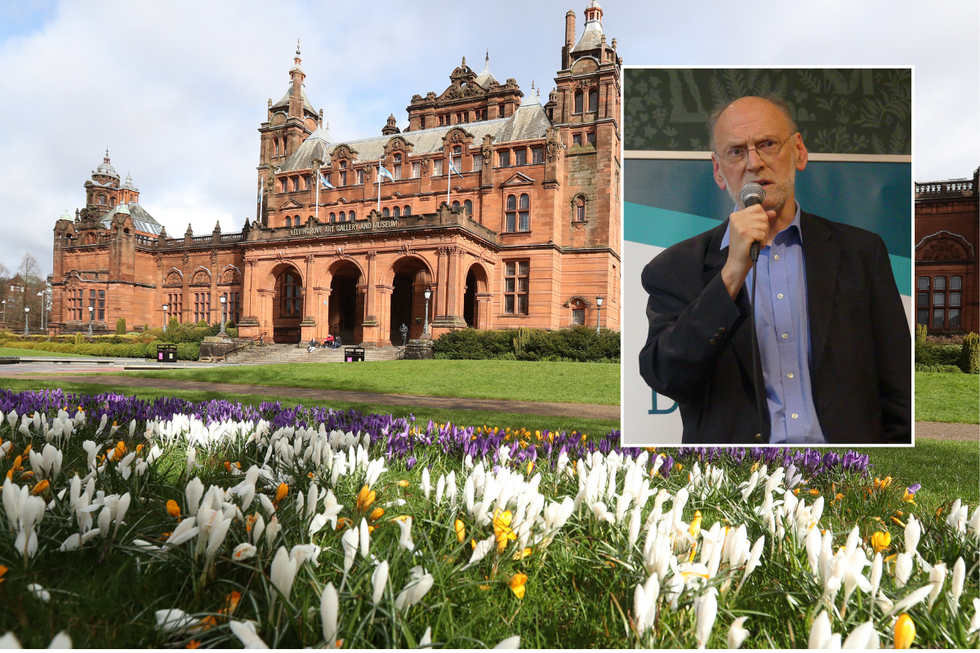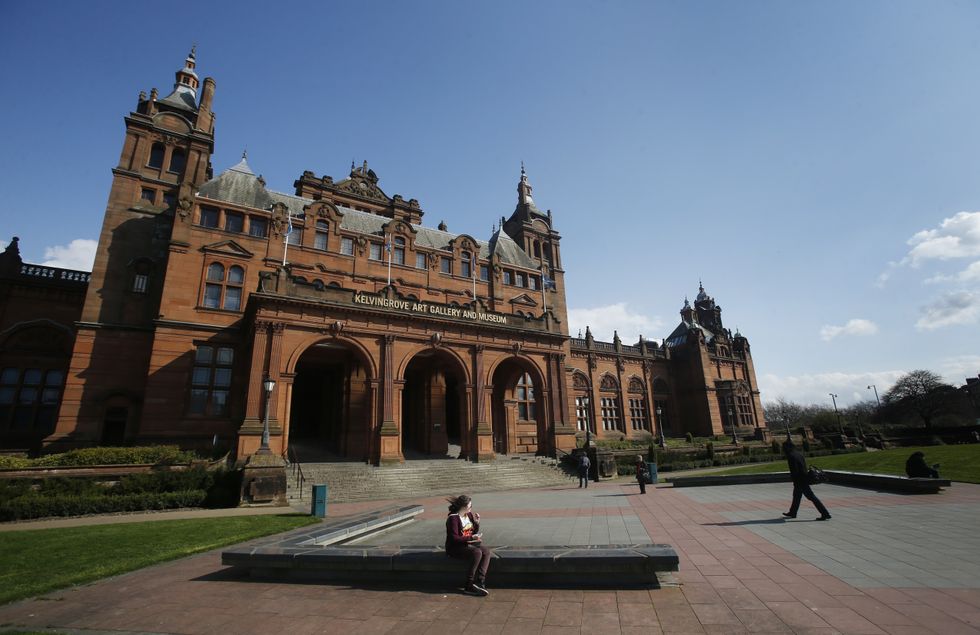A senior academic has claimed an exhibition highlighting Glasgow’s links to slavery is “a distortion of the past.”
Professor emeritus of theology at the University of Oxford Nigel Biggar has claimed the exhibit at the Kelvingrove Art Gallery and Museum is a “travesty of history.”
Glasgow — City of Empire, a permanent display that was installed late last year, emphasises that Scotland’s largest city was a leading transatlantic trade route for sugar, cotton and tobacco and states.
Upon entering the exhibit, a warning is shown to visitors that reads: “Some of the objects displayed contain racist language and images which may cause discomfort or pain. We invite you to sit with this discomfort, confront the realities of racism, and consider how we can tackle racism together.”

University of Oxford scholar Nigel Biggar was speaking about the new exhibition
PA/WikiCommons
However, Biggar has written an open letter to museum manager Philippa Macinnes to “register a protest.”
He wrote: “The display misinforms the public by suggesting that Glasgow was a major centre of slave-trading; maintaining complete silence over Glasgow’s leading role in the movement to abolish slave-trading and slavery and omitting any mention of the costly British (and Scottish) imperial efforts at slavery-suppression worldwide for a century and a half.
“According, to Dr Stephen Mullen, lecturer in history at the University of Glasgow, there was ‘a general lack of direct Scottish involvement’ in the slave trade.
“The south balcony, where the Glasgow — City of Empire display now sits, used to celebrate the truly extraordinary engineering and shipbuilding achievements of Glaswegians during the imperial period, whereas now it damns them all as ‘racist’ and ‘white supremacist’ by association with the British Empire.”
LATEST DEVELOPMENTS

Kelvingrove Art Gallery and Museum in Glasgow
PA
Biggar also noted there had been 27 recorded slave voyages that left Scottish ports and a further four which had been funded from Scotland.
He wrote: “This level of involvement, 31 voyages over a 49-year period, is small when compared with prominent slave ports in England where the trade was much greater and lasted longer.”
Biggar also highlighted the fact that the British Empire was the first in the history of the world to abolish the hitherto universal practices of slave-trading.
He accused the museum of being “unjustifiably silent” about the topic, reports The Times.
Head of Glasgow Life Museums, Duncan Dornan defended the accuracy of the exhibition.
He wrote: “City of Empire builds on work in Kelvingrove Art Gallery and Museum to highlight and explore people and art that are essential to understanding Glasgow.
“The profits of empire and slavery played a crucial role in Glasgow’s economic and social development, and their legacies shape the city today.
“Our approach was developed over many years, and the interpretation has been comprehensively researched to offer wider perspectives, and therefore far greater context and understanding, of history through some of the objects in our collection.”
